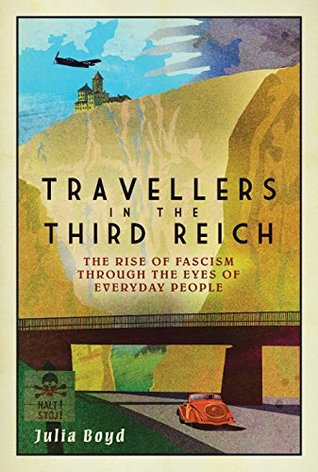More on this book
Community
Kindle Notes & Highlights
by
Julia Boyd
Read between
July 10 - July 19, 2020
Of course, foreigners noticed the profusion of uniforms and flags, the constant marching and heiling but wasn’t that just the Germans being German?
The ceremonial burning of books in Germany’s thirty-odd university towns laid bare Nazi intentions, recalling Heinrich Heine’s famous words: ‘Dort, wo man Bücher verbrennt, verbrennt man am Ende auch Menschen [Where they burn books, they will end by burning people].’
The German press was quick to note the unsegregated presence of thirty African-American ministers at the Congress. One of them, Michael King Sr, was so inspired by his visit to Germany – and in particular by the reforming example of Martin Luther – that on returning to Atlanta he changed both his and his son’s name to Martin Luther King.
‘There is no room in the world for them and me, and one has got to go.’
‘Actually I have always said that there wasn’t a pin to put between Bolshies & Nazis except that the latter, being better organised, are probably more dangerous.’
In order to prevent Rassenschande [racial impurity], no Aryan servant under forty-five was allowed to work in a Jewish household. When a puzzled milkman asked a Herr Levi’s Gentile housekeeper how come she worked for him, she replied that she was partly Jewish. When subsequently her even more perplexed employer asked her why she had lied to the milkman, she replied that she could not possibly admit to being forty-five.
Archie Williams, the African-American 400 metres gold-medallist, made plain the underlying point in an interview with the San Francisco Chronicle. ‘When I came home, somebody asked me “How did those dirty Nazis treat you?” I replied that I didn’t see any dirty Nazis, just a lot of nice German people. And I didn’t have to ride in the back of the bus.’


